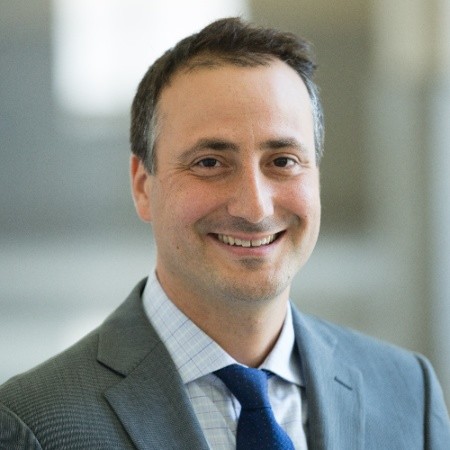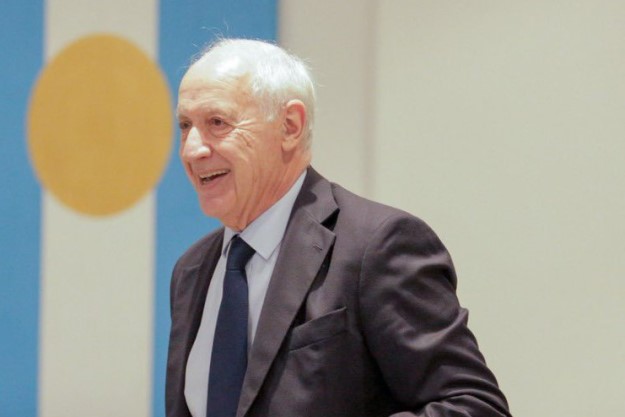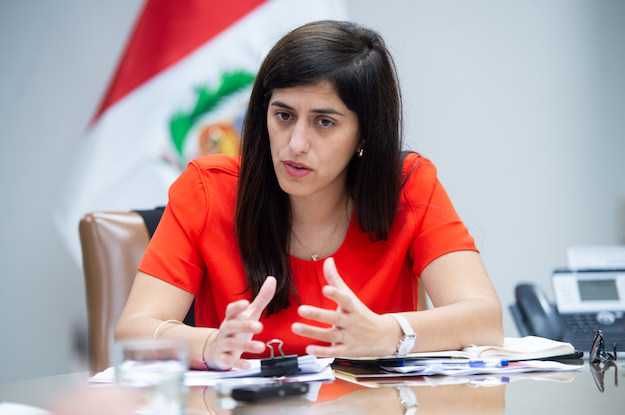Read more about Argentina’s upcoming elections
President Mauricio Macri and his populist nemesis, former President Cristina Fernández de Kirchner, are the frontrunners in Argentina’s October presidential election. But while they loudly wage war, a soft-spoken, 77-year-old economist is quietly reshaping the high-stakes contest.
Roberto Lavagna, who served as finance minister following Argentina’s 2001 economic collapse, disappeared from public life after a failed presidential campaign in 2007. (He received 17 percent of the vote, finishing third, while winning the country’s second-largest province, Córdoba.) But Argentina’s latest economic struggles have rekindled interest in Lavagna’s role in engineering Argentina’s rapid economic recovery almost two decades ago.
Indeed, Argentina’s troubles must feel familiar to Lavagna. As in the early 2000s, the country is locked out of credit markets. Despite the largest-ever loan from the International Monetary Fund, its country risk ranks behind only Venezuela. Inflation exceeds 50 percent, and Argentina is plodding through its second straight year of recession.
Given that grim economic performance, Macri’s re-election is far from assured. But his predecessor, Kirchner, is beset by corruption scandals and has failed to capitalize on Macri’s stumbles. Her support has remained at around 30 percent since she left office in late 2015.
That has opened the door to a third-party bid.
Lavagna is not the only one sensing opportunity. Sergio Massa, a former mayor who once served in Kirchner’s cabinet, has been campaigning since his failed candidacy four years ago. (He received 21 percent of the vote, finishing behind Macri and Daniel Scioli, the governor of Buenos Aires at the time and Kirchner’s favored successor.) Governor Juan Manuel Urtubey of Salta, another young and ambitious moderate Peronist, is also in the race.
But neither Massa nor Urtubey – both under 50 – has generated nearly the buzz surrounding the septuagenarian Lavagna, who first served in government in the 1970s, in the twilight of Juan Perón’s political career.
The excitement over Lavagna’s campaign is the most surprising development so far in the election – and it has created the potential for an electoral upset in October. That is largely because Lavagna’s last time in public service involved resuscitating the country’s ruined economy under interim President Eduardo Duhalde, and later overseeing a spectacular recovery under President Néstor Kirchner.
During Néstor Kirchner’s administration, Lavagna also led the country’s debt restructuring and negotiations with the IMF – relevant credentials given Argentina’s daunting repayment schedule in future years.
In its May survey, the Argentine polling firm Synopsis found Lavagna far ahead of Massa and Urtubey, with support from 13 percent of voters, compared to 6 percent for Massa and 2 percent for Urtubey. In the same poll, 63 percent of respondents cited either inflation or unemployment as the country’s top problem, favorable territory for Lavagna.
Though Lavagna’s experience is an asset, he is seen as a lackluster campaigner, whose preference for socks and sandals has become a popular meme. So far, despite opening a campaign headquarters in Buenos Aires, he has been reluctant to enter the race formally, insisting Massa and Urtubey first drop out.
But he is not sitting on his hands. Lavagna, who selected a member of a different party as his running mate in 2007, has been busy pursuing allies. To attract swing voters, he is building a broad coalition that includes traditional Peronists, socialists, Radicals and progressives, such as former presidential candidate Margarita Stolbizer.
His goal, he said, is a “national unity” government, which he has branded “Consensus 2019,” a vision designed to appeal to voters exhausted by political polarization over the last 16 years.
Following Kirchner’s failed populist experiment, and Macri’s floundering market liberalization, Lavagna offers a centrist path out of Argentina’s endemic stop-and-go cycle. In his 2007 run, he criticized Kirchner’s overspending. This time, he is taking on Macri’s austerity.
Lavagna has also suggested he would serve only one term – a pledge that addresses concerns about his age and could persuade other parties and traditional Peronist candidates to subordinate their ambitions temporarily.
Still, Lavagna’s plan is a long shot, in large part because Massa has shown no interest in standing down. Massa was the first major figure to announce his candidacy, and he insists Lavagna face him in a primary in August.
This face-off must be resolved quickly. Next month is the deadline for candidates to confirm their coalitions and join the race. Continued divisions among traditional Peronists would doom Lavagna’s campaign.
For Macri, that would be a godsend. His poll numbers have weakened due to the economic crisis, raising the possibility he could fail to secure a spot in a run-off against Kirchner, who seems certain to meet the threshold. (To win in the first round, a candidate must receive at least 45 percent of the vote, or 40 percent with a 10 percentage point advantage over the second-place finisher.) Lavagna has no shot at knocking out Macri unless other traditional Peronists play along.
A second round slugfest between Macri and Kirchner is too close to call. But one thing is clear: In a head-to-head contest against either frontrunner, Lavagna would be Argentina’s next president.
—
Gedan, a former South America director on the National Security Council, is the senior adviser to the Latin American Program at the Woodrow Wilson International Center for Scholars and an adjunct lecturer at Johns Hopkins University. Saldías is a Wilson Center researcher.







